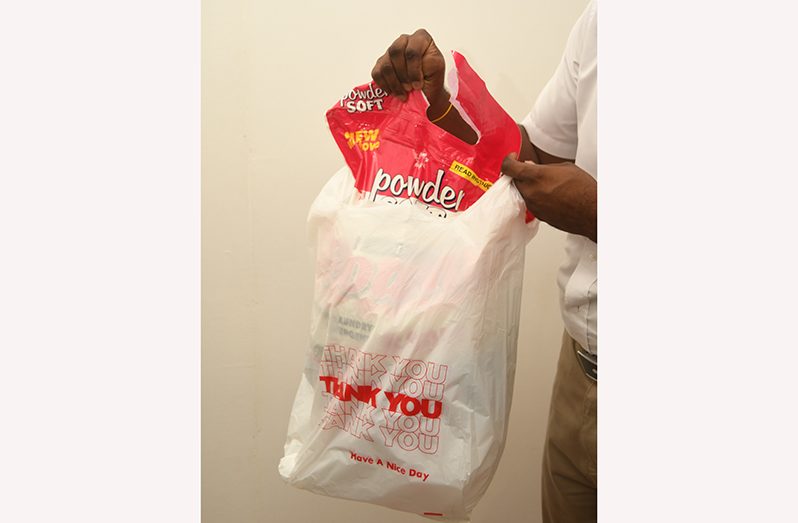— Guyana phasing out consumption of single-use plastic products
THE period of transition from single-use plastic products (exclusive of plastic drinking water bottles) to reusable and environmentally-friendly alternatives is currently underway, according to President of Guyana, Dr Irfaan Ali. He made this statement during a press conference on Wednesday at State House. The ban on single-use products has been in discussion for a number of years, in an effort to influence the crafting of a bill to amend the Environmental Protection Act 1996, and legally enforce the ban on single-use plastics. The bid is aligned with a decision taken by the previous administration in 2018 to ban the importation, manufacture, sale and use of single-use plastic bags and other single-use plastics from 2021.
Single-use plastics are plastic products that are used only once before they are thrown out. These include straws, cups, bags, utensils and plates, and are made from polyethylene, the most widely used plastic in the world. Previously, there were plans to intensify consultations with a range of stakeholders, including Government agencies, academia, manufacturing companies, supermarkets, civil society and the general public. The consultations were intended to raise awareness and encourage action across the country on the dangers of single-use plastics and littering, while addressing stakeholders’ concerns that would guide appropriate and effective decision-making on safe alternatives and fiscal incentives and policies for implementation.
The ban is intended to assist in managing natural resources wealth, supporting economic resilience and building human capital; and favour a reduction in the overall waste stream and, concomitantly, a reduction in the cost of waste management. Apart from positive environmental benefits like aesthetics improvement, the ban is hoped to lead towards the development of ‘green’ businesses and the creation of jobs in these areas, in keeping with the country’s gradual transition to sustainability.
The solution for combating plastic pollution is dependent on the alternatives available to rival single-use plastic which are both biodegradable and renewable. As such, many stakeholders were encouraged to transition to the use of biodegradable and reusable products, such as reusable shopping bags and water bottles, while cutting out non-essential items such as plastic straws.
Globally, it is estimated that over 300 million tonnes of single-use plastic bags and other single-use plastic items are produced each year. Recent data indicate that plastic production from the 1950s has increased from two million tonnes per year to approximately 348 million tonnes per year.
With minimum recycling, the majority of this may end up in landfills, where scientists estimate that it takes hundreds of years to degrade, or in the oceans and other waterways, where it leads to flooding through clogged drainage systems, and negatively impacts marine life through entanglement, suffocation or being mistaken for food. An International Coastal Clean-Up activity at the Kingston Seawall in 2018 showed that approximately 68 per cent of waste collected was single-use plastics.




.png)









